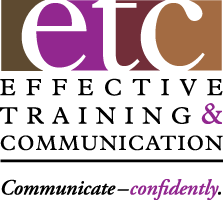You’ve had more simple questions about presentations last month … and we’ve had more simple answers.
practice
Practice Doesn’t Make Perfect!
I hate to trash a childhood fantasy, but Practice doesn’t really make Perfect … it only makes Permanent. Only Perfect Practice makes Perfect. I’ve ranted before about why presenters shouldn’t try to memorize their presentations. They should learn them through practice and refinement of message content and structure. Some thoughts for your consideration:
How much should you practice?
Last month’s ‘Communicate Confidently’ eLetter article on practicing presentations generated several reader questions. Here’s a summary of some of the comments I offered in my email responses:
Practice Doesn’t Make Perfect!
I hate to trash a childhood fantasy, but Practice doesn’t really make Perfect … it only makes Permanent. Only Perfect Practice makes Perfect. I’ve ranted before about why presenters shouldn’t try to memorize their presentations. They should learn them through practice and refinement of message content and structure. Some thoughts for your consideration:
Practice Does NOT Make Perfect
Remember when a parent or your piano teacher told you that ‘Practice makes Perfect’? They didn’t know it at the time, but they were wrong. Practice does NOT make perfect. Practice only makes Permanent! Only Perfect Practice makes Perfect.
So what does this bit of philosophy have to do with workplace presentations or sales pitches? Well … everything. That’s how you get into the Presenters Hall of Fame.
Smart Practicing Does Matter
Several site visitors sent in questions recently about how to practice their presentations. I responded to them individually, but thought an overall summary of my comments would be of interest to all of you.
So, let’s assume you’ve planned and organized a world-class audience-centric presentation, created effective speaker support slides and a useful handout. And you’re even ahead of the time line, since the presentation to senior management isn’t for three days.
